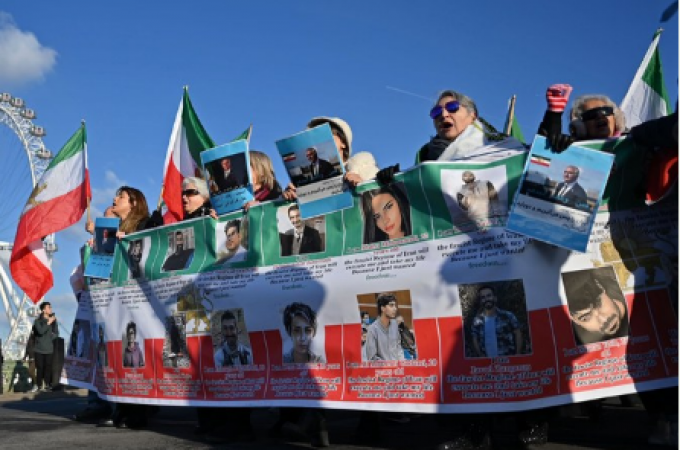
Dubai: Despite opposition from human rights organisations, Iran executed three men on Friday who had been charged with murder during last year's anti-government demonstrations.
The executions of Saeed Yaghoubi, Saleh Mirhashemi, and Majid Kazemi were announced on the judiciary's website Mizan without any information regarding the manner of execution. Authorities claim that during nationwide protests in Isfahan in November, they killed a police officer and two members of the paramilitary Basij group.
Rights organisations claim that the three were denied due process, subjected to torture, and coerced into making televised confessions. Last September, protests broke out in response to the passing of Mahsa Amini, 22, who had been detained by the nation's morality police for allegedly breaking its strict Islamic dress code.
Also Read: An opposition leader in Cambodia calls the upcoming elections a "sham"
The protests quickly turned into demands for the overthrow of Iran's theocracy, which has ruled since the Islamic Revolution of 1979.
While there are still sporadic acts of defiance, such as the refusal of an increasing number of women to wear the required Islamic headscarf, known as the hijab, there have been fewer protests in recent months.
Seven people have been put to death in Iran as a result of the protests. Rights organisations assert that they and several other people who have received death sentences were found guilty by covert state security courts and were therefore denied the right to an attorney.
Hadi Ghaemi, the executive director of the New York-based Centre for Human Rights in Iran, criticised the three who were put to death on Friday, saying that the prosecution had relied on coerced "confessions" and the indictment was rife with errors that showed this was a politically motivated case.
Also Read: Official: Imran Khan's home will be searched by Pakistani police
According to the group, Kazemi called a relative and claimed that the authorities had stun-gunted him, flogged his feet, and threatened to assault him sexually.
Another illustration of the Iranian authorities' flagrant disregard for the rights to life and a fair trial is the shocking way in which the trial and sentencing of these protesters were expedited through Iran's judicial system while using 'confessions' tainted by torture, serious procedural errors, and a lack of evidence, according to Diana Eltahawy, Amnesty's deputy director for the Middle East and North Africa.
Iran launched a harsh crackdown on the protests, branding them as an international plot without any supporting evidence. The protesters claimed they had had enough of decades of oppression and bad leadership. Since the US unilaterally withdrew from the 2015 nuclear agreement and re-imposed crippling sanctions, Iran's economy has been in free fall.
Also Read: Asian moms are not represented in the UK maternity death inquiry
During the months-long protests, more than 500 people were killed, including numerous members of the security forces. Although many have since been released, about 19,000 people were detained.
One of the most prolific executioners in the world is Iran. In 2022, at least 582 people were put to death, up from 333 the year before. Human rights activists and UN officials have expressed concern about the rise in executions, which include those for drug offences and nebulous accusations of "enmity against God" and "spreading corruption on earth."